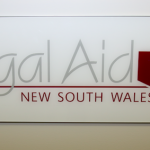How can I become a lawyer?

This is part one of a three-part blog outlining some of the pathways towards becoming a lawyer in NSW.
There are three main steps towards becoming a lawyer:
1. Getting the relevant academic qualification
2. Undertaking practical legal training, and
3. Getting a job.
Here is the first step:
1. Getting a relevant academic qualification.
To become a lawyer in NSW, you must obtain a law degree or diploma that is recognised by this state.
A. As an undergraduate
An undergraduate is someone who has not completed a tertiary course, such as a university degree.
If you are an Australian citizen or permanent resident, you are eligible to apply for entry into a law degree – called an ‘LL.B’ – after completing your Higher School Certificate.
The success of your application will depend on your ATAR score and you can apply through the UAC system.
If you do not gain the required ATAR score, some universities offer alternative pathways towards entry as an undergraduate – these universities include Macquarie University, Australian Catholic University (‘ACU’), the University of Western Sydney (‘UWS’).
Further details are available on their websites.
A law degree will normally take between 3 and 6 years, depending on various factors including:
- Whether you undertake full-time or part time studies,
- Whether you complete courses over the summer period, and
- Whether you combine your law degree with another degree such as Arts, Science, Commerce or Economics.
Most universities only offer law degrees combined with other degrees.
However, the University of Technology, Sydney (‘UTS’), Macquarie University, University of Notre Dame and University of New England (‘UNE’) offer standalone law degrees.
The usual method of study is by personal attendance at classes and tutorials at the university campus. However, some universities offer ‘online’ or ‘distance’ courses. These universities include UNE and Southern Cross University (‘SCU’).
All undergraduate degrees contain several ‘core’ subjects which are compulsory, as well as elective units which are usually undertaken in later years of study.
As an undergraduate, you will normally qualify for Commonwealth financial support towards the cost of your degree or diploma, and the balance can be paid ‘upfront’ or, more commonly, over time once you start working and gain a certain level of income.
What if I don’t get the required ATAR Score?
If your ATAR is below what is required, an alternative pathway is to undertake a Diploma in Law through the Legal Profession Admission Board (or ‘LPAB’), which is part of the Law Extension Committee of the University of Sydney. The program is commonly known as the ‘LPAB’.
The LPAB is a well-respected Diploma in Law requiring an ATAR score that is generally lower than required for a degree. The ATAR currently required for the LPAB is 68.9. You can also qualify by sitting a Special Tertiary Admission Test (‘STAT’) which assesses your suitability for tertiary study. That test is administered by UAC and a STAT of 152 is currently required.
The LPAB
The LPAB is designed for people in the workforce or who cannot otherwise attend classes.
It can be completed in 3 years and leads to an accredited Diploma in Law that is technically as good for the purpose of admission as any law degree.
The course can be undertaken by attending lectures in Sydney between 6pm and 8.30-9pm on weekdays or at various external schools on weekends.
It can be completed in 3 years and candidates are required to pass 20 subjects, comprising 17 compulsory subjects and 3 electives. Candidates choose electives from the 9 that are offered. Exams are normally undertaken at the end of each subject.
The fees for the LPAB are generally far lower than a law degree. There is a one-off ‘student at law registration fee’ which is currently $230 , a fee of $530 for each subject and fee of $180 for each exam.
The entire course can be completed for under $15,000.
B. As a postgraduate
A postgraduate is someone who has completed a tertiary degree or diploma.
There are two main types of postgraduate law degrees:
1. The postgraduate LL.B, which is a condensed form of the undergraduate LL.B and can be completed in 3 years, and
2. The Juris Doctor (‘JD’), which is a degree based upon a United States equivalent. It normally comprises 24 subjects and takes 3 years to complete.
Postgraduates can also undertake a Masters of Law, or ‘LL.M’, which is an internationally recognised qualification which normally takes 2 years to complete.
Postgraduates may also qualify for the LBAB, which is outlined above.
C. As an international student
If you are an international student, you can apply for entry into a law degree or diploma directly through the particular tertiary institution.
The easiest way to do this is by accessing the university’s website.
The course fees for international students can be very expensive and the selection criterion varies from university-to-university.
You should spend time going through the university websites, comparing the requirements and contacting them for further information before applying for the course/s that suit your situation, your needs and your financial situation.
You will also need to apply to the Australian government for a student visa. To qualify, you will need to show evidence that you have adequate funds, overseas health cover, good character and sufficient English language skills – or, that you will obtain English language skills by completing a pre-study language course (the ‘ILs’).
D. As a mature-age student
Some universities offer pathways for entry to mature-age students who would not otherwise qualify.
Mature Age Entry Scheme
The University of Sydney offers the Mature Age Entry Scheme ( ‘MAES’) which is available to persons over 21 years of age who do not have the equivalent of:
- a UAI/ATAR score of 70.00 or more, or
- a completed TAFE diploma, or
- a university record of attendance record of one or more full-time years.
A range of degrees can be accessed through the scheme, including the LL.B.
Applications can be made to the University’s Centre for Continuing Education which also offers short courses designed to prepare mature-age students for university; including the University Preparation Course.
Such preparatory courses are also available through TAFE; which offers a Tertiary Preparation Certificate.
The courses can assist in creating a smooth transition into university for people who have not studied for years or even decades.
The LPAB
Another pathway for mature-age students is the Legal Professional Admission Board course (‘LPAB’) which was outlined earlier.
So it’s definitely never too late to get qualified as a lawyer.
In fact, mature-aged lawyers are well respected and highly employable due to their good people skills and significant life experience.






